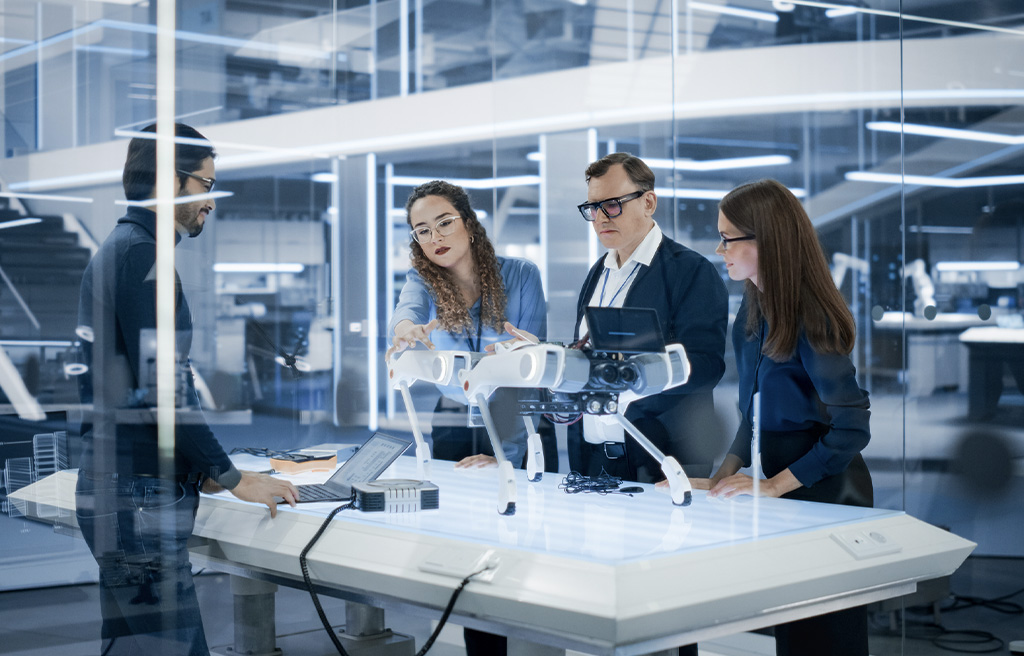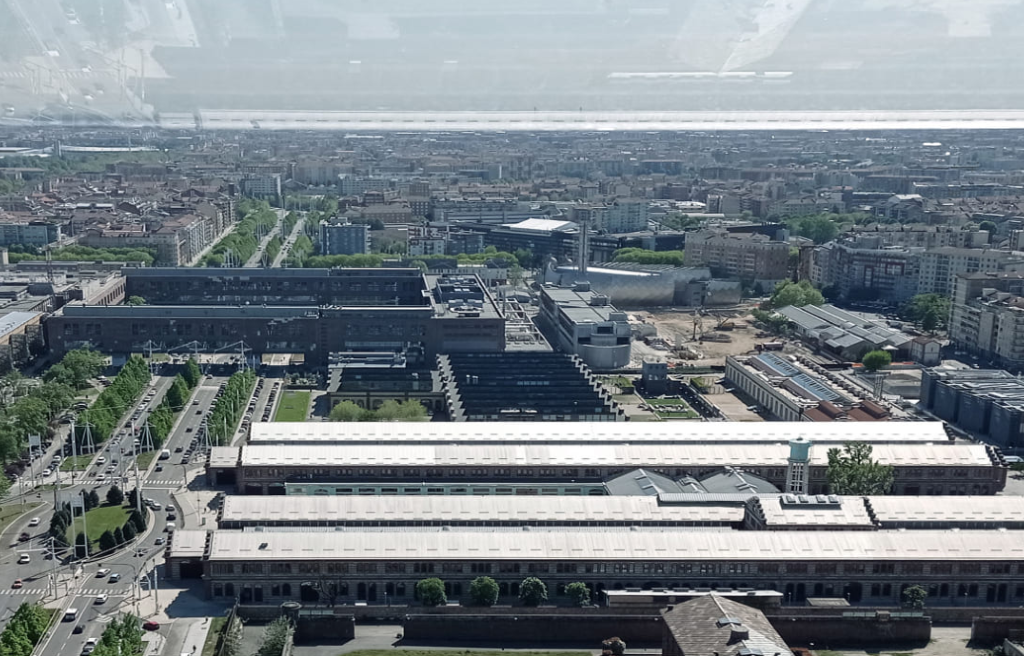Startup Tales | How Astradyne adapts the origami technique to space
Founded in 2021 in Bari, the innovative startup active in the realization of deployable structures for the aerospace sector has developed a technology that integrates flexible rigid electronics and textile material. The first application is SolarCube, a solar panel that once in orbit "opens" like an origami, with countless possible applications of technology in other areas.
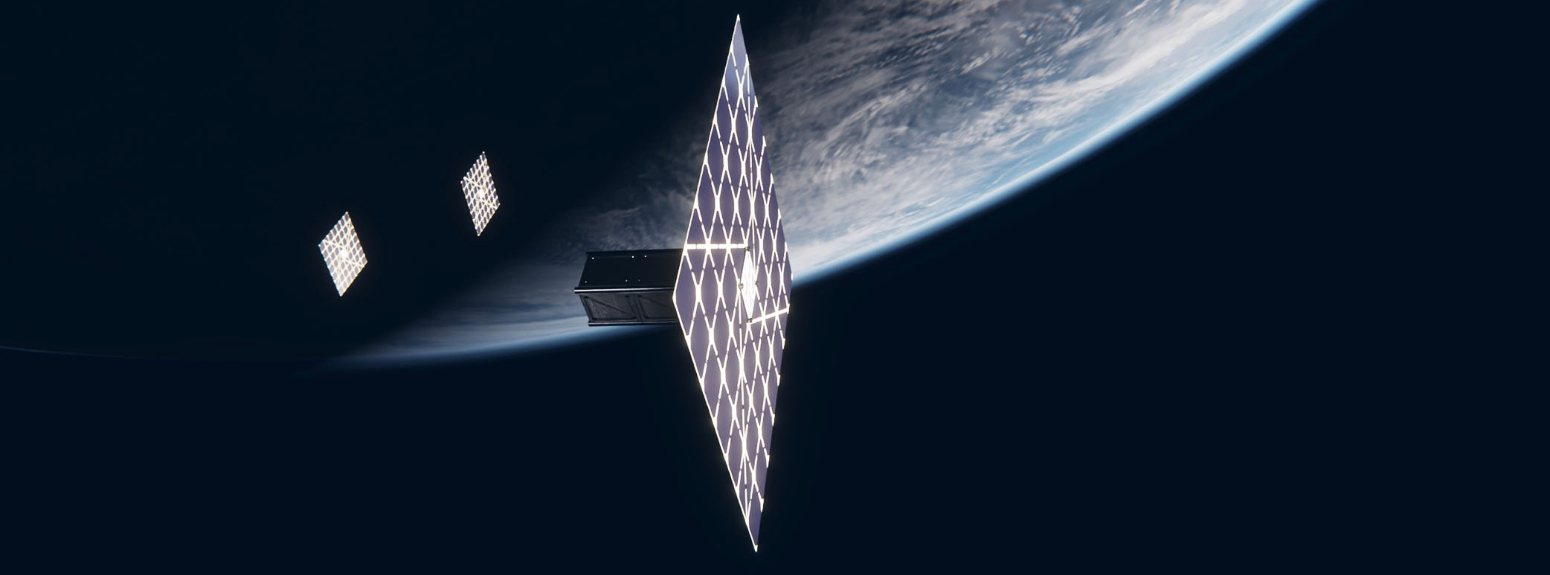

Technological innovation historically represents a pillar of the aerospace industry that, in addition to captivating humanity thanks to the aura of mystery that surrounds it, offers economic opportunities linked to technological challenges given the strong expansion of the New Space Economy.
In fact, the New Space Economy - together with activities and services linked to space that also involves private entities - is estimated to be worth more than 1,000 billion euros by 2050 compared to the current 450, driven by the perspectives of technological development in various areas including communications, scientific research and defense. A market in which Italy has always occupied a leading role, with the Italian aerospace industry seventh in the world and fourth in Europe in the ratio of investment to GDP testifying its strategic importance for the economic growth of our country.
This is the context for Astradyne, an innovative startup founded in Bari in May 2021 and active in the development of deployable structures for the aerospace sector. The Apulian reality, in fact, has developed an innovative technology capable of integrating rigid-flexible electronics and textile material whose first application is SolarCube: a solar panel to power small satellites that, once in orbit, "opens" inspired by the origami technique.
The history of Astradyne
Astradyne was born from the encounter between Alessandro Buscicchio, Vittorio Netti and Davide Vittori, at the time PhD students at the Polytechnic of Bari with diverse backgrounds. In particular, the technology was developed starting from the experience of Alessandro Buscicchio at NASA-JPL, where he worked on robots for Martian exploration. Back in Italy, Buscicchio combined his skills with those of Netti and Vittori founding Astradyne, whose headquarters is on the campus of the University of Puglia with which the startup cooperates profitably.
Having an embryonic idea "in hand" and little more, the three co-founders of the startup decide to participate in the hackathon Galactica in 2021: a challenge promoted by the European Union to find new ideas that combine advanced manufacturing, aerospace and textiles.
The unexpected victory in the comparison with realities started from more time is the impulse to start the entrepreneurial activity. Another breakthrough took place in mid-2022. Aided by the need for a figure with a solid background in aerospace, Alessia Gloder becomes aware of the project, seizes its potential and enters Astradyne becoming CEO.
Born in Dueville (Vicenza) in 1992, Alessia Gloder has in fact obtained a double degree in aerospace engineering (the first at the University of Padua, the second with specialization in thermal propulsion at Cranfield University in the United Kingdom) and one in clarinet, has been twice TEDx speaker and currently attends the Executive MBA in Business Innovation of MIB Trieste - School of Management.
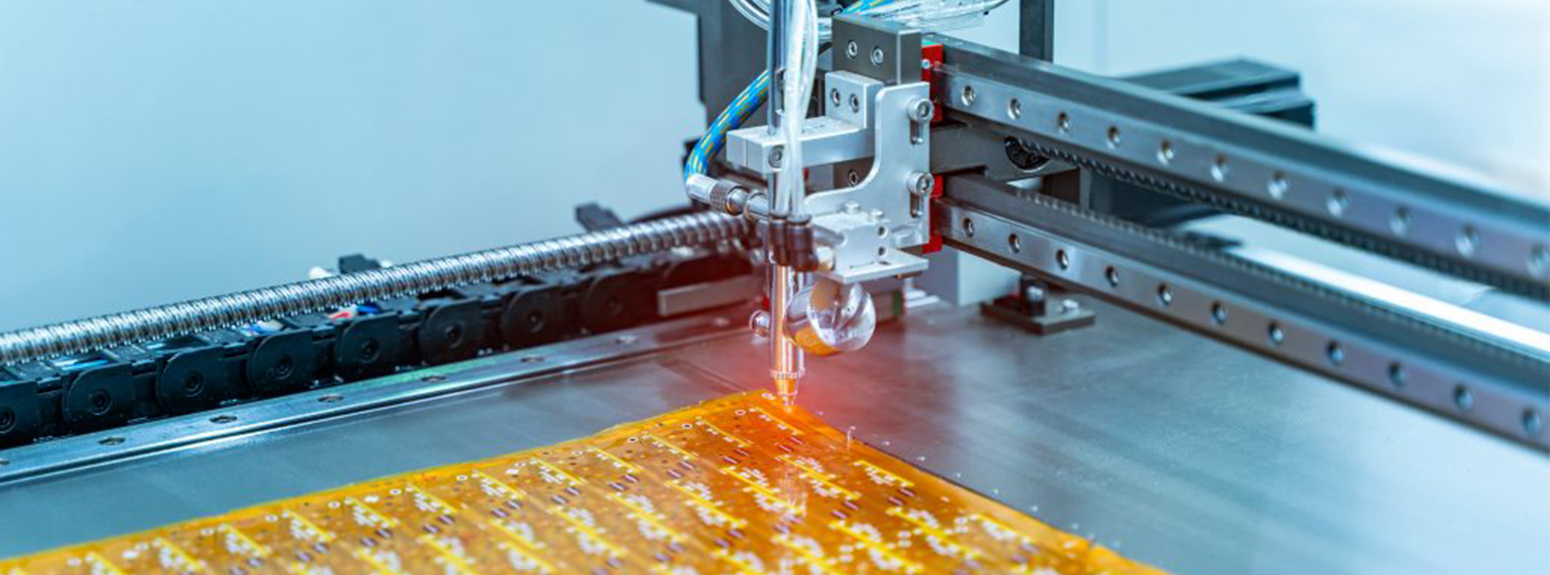

How the FRET technology developed by Astradyne works
In detail, the innovative startup has developed a technology called FRET ((Flexible, Reinforced Electronics with Textile), which integrates textile material and flexible electronic boards (Flex pcbs) combined with a "secret" formula through an innovative design and manufacturing process.
The first application of the technology is the photovoltaic module SolarCube inspired by the origami technique that, thanks to the substrate made with FRET technology, is lighter, more compact and with 50% more power compared to the solutions already available on the market.
"The origami technique and, in general, the deployable structures - emphasizes Gloder - are inserted in a historical moment in which the launch costs are reducing, with the mass that remains an important factor and the volume to assume greater importance since reducing it is possible to insert more subsystems and/or reduce the size of the satellites to launch, and therefore the mission costs". In this sense, continues the CEO of Astradyne, "having a very large surface that collapses into a small volume results in a panel that can accommodate more cells and therefore can provide more power, thus responding to the growing energy needs of satellites".
Moreover, explains Gloder, "our technology does not require exposed wiring and allows bending up to 180 degrees, with the fabric acting as a substrate that absorbs the main stress and that replaces the mechanical hinges: one of the main breaking points of the panels unfoldable".
The growth and "successes" of Astradyne
Selected to enter the first round of the ESA BIC Turin incubation program managed by I3P in mid-2022, Astradyne was one of the first startups to participate in the acceleration program Business Innovation Factory realized by Leonardo in partnership with lventure Group. Moreover, Gloder recalls, "the support of the European Commission has been very important. By participating and winning the various phases of the European Galactica project, in fact, we first developed the MVP of our technology and our product, and then the first embryonic prototype of the SolarCube product".
Astradyne, moreover, in the final event of the project aimed to demonstrate the feasibility of new industrial value chains for the textile and aerospace sectors based on advanced production throughout the European Union held in Barcelona on 16 February 2023, won the first prize in the Orbital category.
One of the many satisfactions both nationally and internationally for the Apulian reality, which as Gloder recalls also won "the award for innovation during the Paris Space Week 2023 sponsored and awarded by Airbus, and the first prize of the call SPREAD2INNO promoted by the Amaldi Foundation during the event We Make Future 2023 in Rimini".
In addition, SolarCube has led Astradyne to win the Primo Round award (designed by the 2031 platform to identify and help grow the best Italian early stage startups) assigned to the best startup of the year by a jury of 11 top investors and business angels during the Italian Tech Week 2023 held last September at the OGR in Turin.
An important recognition that gave great visibility to the startup, with "La Repubblica that place us among the 10 best tech startups in Italy at the end of last year, allowing us to achieve another beautiful result. We also received numerous letters of interest from various players in the market, noting that there is a strong interest in our product", underlines the CEO of Astradyne.
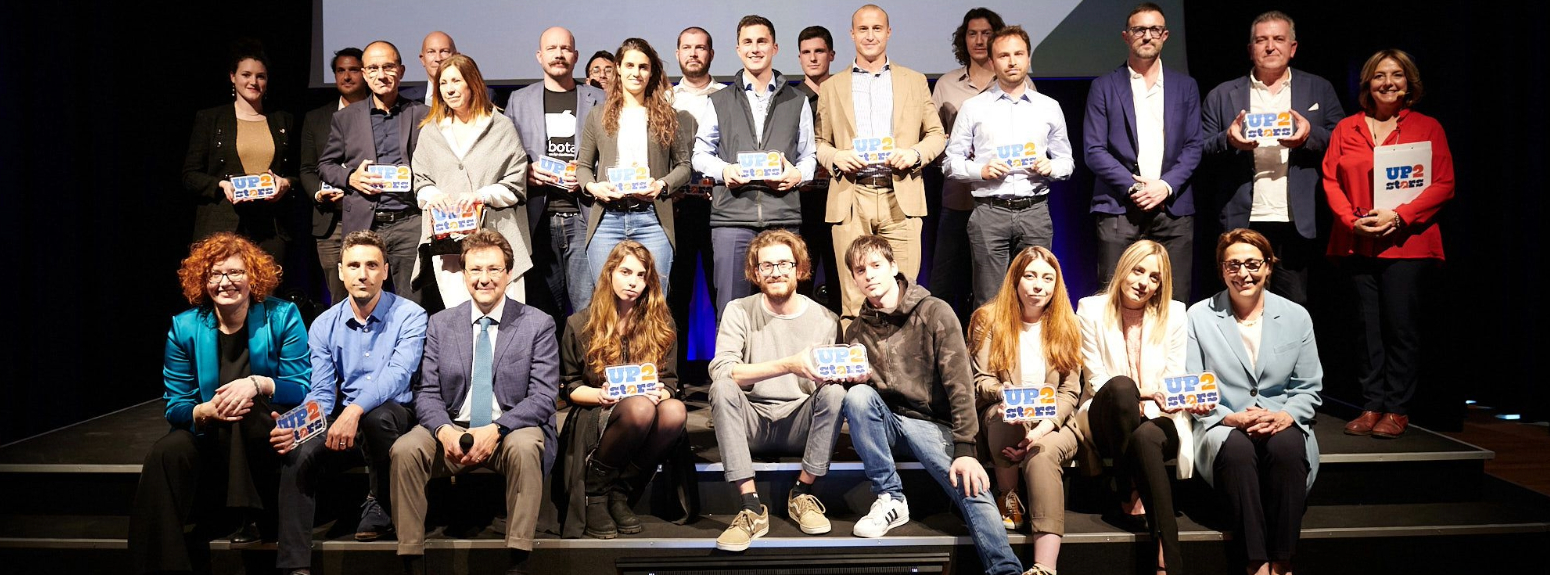

From participation in Up2Stars to the Elite Lounge: the support of Intesa Sanpaolo and Intesa Sanpaolo Innovation Center for the growth of Astradyne
Astradyne’s growth path also includes participation in the 2022 edition of Up2Stars in the Aerospace sector: the acceleration program born from the collaboration between Intesa Sanpaolo and Intesa Sanpaolo Innovation Center with the support of the Gellify innovation platform.
"The path - explains Gloder - has been very interesting giving us the opportunity to get in touch with many Italian startups and expand our network. We have also worked closely with Gellify’s mentors, together with whom we have deepened several aspects of our business. Another important aspect for our growth lies in the professional backgrounds of mentors also in other sectors, because it allowed us to have different perspectives and focus on aspects that we would not otherwise have taken into account".
The course ended with a pitch on Demo Day held in Naples in front of an audience of investors and potential partners. In this sense, the CEO of Astradyne recalls how "right there, on the stage of Demo Day, we made our pitch immediately after Involve Space, one of the many participating startups, and we realized we could start a collaboration".
Subsequently, the innovative reality of Puglia entered the Elite Lounge of Intesa Sanpaolo organized in collaboration with Elite: Euronext ecosystem that helps startups and SMEs to grow and structure themselves through a set of services to support the business.
"Through a series of workshops, participation in the Elite Lounge allowed us to begin to understand what will happen in a few years and understand how to get there in advance and, more generally, how to 'make startups' in a more conscious way by offering tools that are then reused in everyday life", points out Gloder.
"In addition, - adds the CEO of Astradyne - the acceleration programs in which we participated do not end with its conclusion. In fact, it is not only investment in the growth and formation of the startup, but also the creation of networks and friendships that last over time, as well as supporting us by offering visibility".
For example with the participation in the event "Space Economy: connectivity, sustainability, industries, governments" held last September 5 at the Embassy of Italy in London during which, in addition to the presentation by Intesa Sanpaolo Innovation Center of the SpaceTech X-Plore report, Astradyne had the opportunity to illustrate its solution deepening its technological content with the audience.
Objectives and prospects for the future of Astradyne
After closing last June a pre-seed investment round led by Galaxia - National Hub of Technology Transfer for Aerospace, created by CDP Venture Capital and implemented in partnership with Obloo -, Astradyne’s objectives include "a seed round that we are working on and that we should close in 2024, ground testing of the technology to optimize and validate the design, and the demonstration in orbit expected in 2025", explains Alessia Gloder.
Subsequently, continues the CEO of Astradyne, "our goal is to consolidate and scale the SolarCube product towards small and medium-sized satellite platforms, as well as expand our product portfolio by exploring in parallel applications on various verticals of our particularly versatile technology, both in the aeronautical and terrestrial sectors".
Another goal is to attract returning talent from abroad to expand the team currently composed of 9 people - not surprisingly returned to Italy after experiences in other countries -, also exploiting the investments and support of the Region, contributing to the expansion the Apulian aerospace ecosystem.
All the Startup Tales

